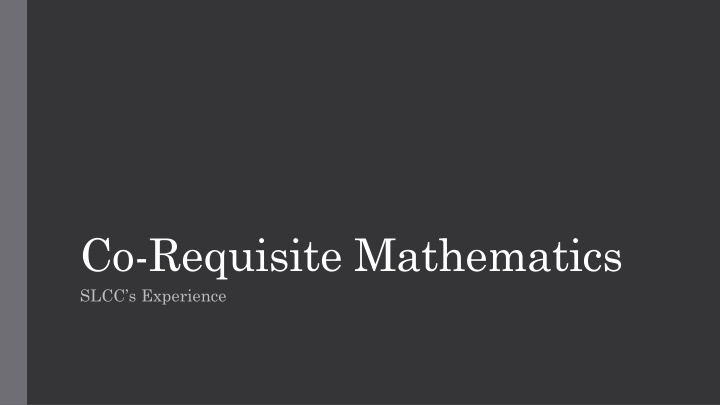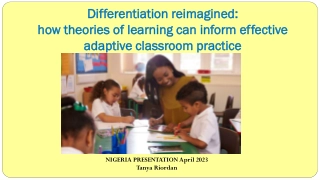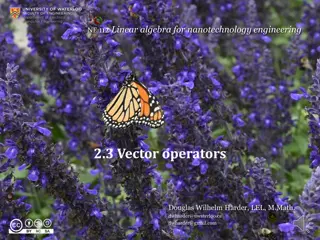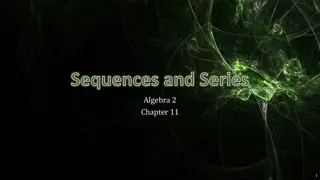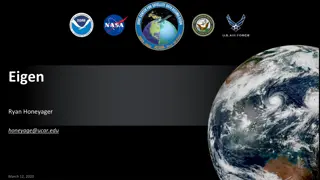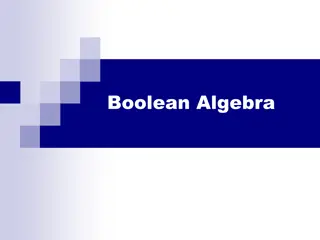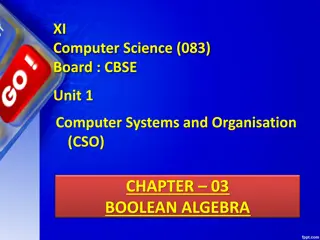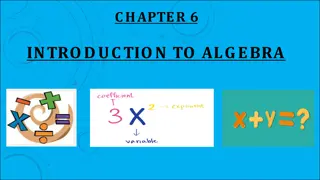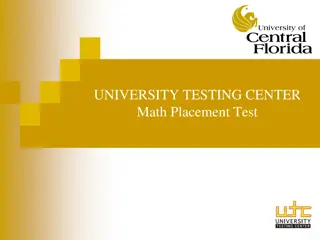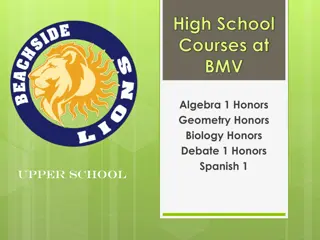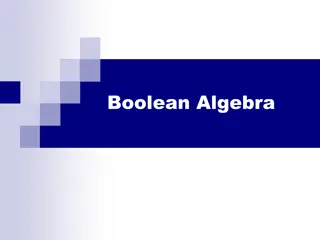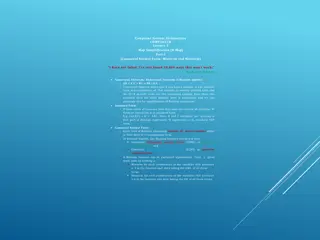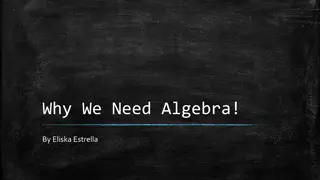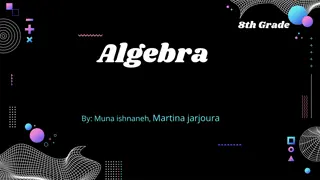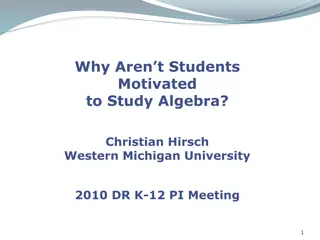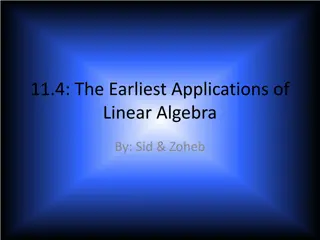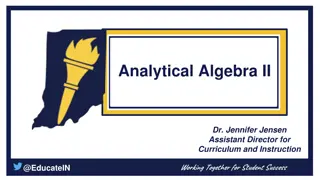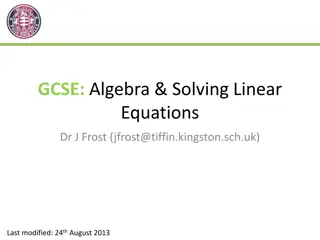Reimagining College Algebra with Co-Requisite Approach
Transforming the College Algebra experience by implementing a co-requisite model since Fall 2015, leading to enhanced student success rates, positive student feedback, and innovative teaching methodologies. The approach integrates foundational content, promotes good study habits, and includes various activities to enrich learning. Enrollment data and success metrics underscore the effectiveness of this innovative method in improving student outcomes.
Download Presentation

Please find below an Image/Link to download the presentation.
The content on the website is provided AS IS for your information and personal use only. It may not be sold, licensed, or shared on other websites without obtaining consent from the author.If you encounter any issues during the download, it is possible that the publisher has removed the file from their server.
You are allowed to download the files provided on this website for personal or commercial use, subject to the condition that they are used lawfully. All files are the property of their respective owners.
The content on the website is provided AS IS for your information and personal use only. It may not be sold, licensed, or shared on other websites without obtaining consent from the author.
E N D
Presentation Transcript
Co-Requisite Mathematics SLCC s Experience
Our Co-Requisite History First offered in Fall 2015. LFMA/MATH 0093 (Algebra Workshop) paired with MATH 1105 (College Algebra). ACT 18 or equivalent. One adopted text for both courses.
Our Approaches Embedded in College Algebra Separate instructors Did not work well Same instructor Worked better, difficult to schedule, decreased flexibility Cohort sections (same instructor) Two traditional courses Traditional college level course, Hybrid co-requisite course Two courses in same modality
Co-Requisite Content Any background material necessary for College Algebra. Activities to promote good habits and increase perseverance In-class homework time Review worksheets Test reviews Office conferences Final Exam worksheets Grade is largely based on participation in in-class activities.
Co-Requisite Enrollment History Academic Year Co-Requisite Enrollment Percentage of College Algebra Enrollment 2.2% 2.6% 2.9% 6.6% 7.8% 4.8% 8.1% 10.4% 2015 2016 2016 2017 2017 2018 2018 2019 2019 2020 2020 2021 2021 2022 2022 2023 50 59 57 126 151 87 115 136
Our Successes Since Fall 2017, 81% of students who completed both co-requisite courses passed College Algebra. Since Spring 2021, all but 1 assessed co-requisite sections have met the 80% "Meets or Exceeds Expectations" target in college-wide assessment. Since Fall 2019, Student Rating of Instruction Data shows a 4.84/5 overall rating.
More Successes SRI Comments on "What is the most valuable or useful thing you have learned in this class?" "how to do algebra, I am so proud of myself for the things I learn from that math class." "The more I practice my math the better I will become at it." "that i can learn math" "how to do algebra, I am so proud of myself for the things I learn from that math class." "The most valuable thing I have learned from this course is repetition. Working the problems over and over until a firm grasp of the material is obtained has helped tremendously."
Our Challenges Attendance and Participation On average, 13% of students fail because they stopped attending. Academic Integrity Perseverance
Introducing MATH 0088 Using a 2 tiered approach Difference between ACT of 16 and 17 Same content and approach as MATH 0093 Hiring course lead New Adjuncts Scheduling Back to back sections on the same days (2 or 3 days per week) MWF, MW, TR Offset days (4 or 5 days per week) MW/TR, MWF/TR
What Were Trying Activities that worked well in MATH 0093 Review Worksheets Class time for homework New approaches Reordering College Algebra material Notebook checks Exam reflections Peer grading Option to work ahead
Anecdotes from Instructors The 5 day per week format works well. It seems like a majority of the coreq students lack study skills even more than math skills, and prioritizing frequency over duration is exactly what they need to apply to their own study habits. The extra practice time is helpful. One of the most obvious differences in the way I handle corequisite sections opposed to regular MATH 1105 sections is that in the corequisite sections I have more practice questions (hand outs) in class and I check for understanding by calling on students by handing them my iPad and having them demonstrate their work. (this is far less intimidating than asking them to come to the board).
Successes Extra time in class encourages homework completion. Students who engage do well. Challenges Attendance and Participation Academic Integrity Perseverance
